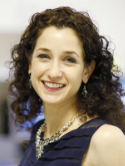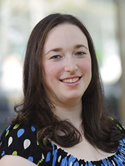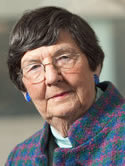Developing a cancer-specific geriatric assessment: A feasibility study Journal Article
| Authors: | Hurria, A.; Gupta, S.; Zauderer, M.; Zuckerman, E. L.; Cohen, H. J.; Muss, H.; Rodin, M.; Panageas, K. S.; Holland, J. C.; Saltz, L.; Kris, M. G.; Noy, A.; Gomez, J.; Jakubowski, A.; Hudis, C.; Kornblith, A. B. |
| Article Title: | Developing a cancer-specific geriatric assessment: A feasibility study |
| Abstract: | BACKGROUND. As the U.S. population ages, there is an emerging need to characterize the "functional age" of older patients with cancer to tailor treatment decisions and stratify outcomes based on factors other than chronologic age. The goals of the current study were to develop a brief, but comprehensive, primarily self-administered cancer-specific geriatric assessment measure and to determine its feasibility as measured by 1) the percentage of patients able to complete the measure on their own, 2) the length of time to complete, and 3) patient satisfaction with the measure. METHODS. The geriatric and oncology literature was reviewed to choose validated measures of geriatric assessment across the following domains: functional status, comorbidity, cognition, psychological status, social functioning and support, and nutritional status. Criteria applied to geriatric assessment measurements included reliability, validity, brevity, and ability to self-administer. The measure was administered to patients with breast carcinoma, lung carcinoma, colorectal carcinoma, or lymphoma who were fluent in English and receiving chemotherapy at Memorial Sloan-Kettering Cancer Center (New York, NY) or the University of Chicago (Chicago, IL). RESULTS. The instrument was completed by 43 patients (mean age, 74 yrs; range, 65-87 yrs). The majority had AJCC Stage IV disease (68%). The mean time to completion of the assessment was 27 minutes (range, 8-45 mins). Most patients were able to complete the self-administered portion of the assessment without assistance (78%) and were satisfied with the questionnaire length (90%). There was no association noted between age (P = 0.56) or educational level (P = 0.99) and the ability to complete the assessment without assistance. CONCLUSIONS. In this cohort, this brief but comprehensive geriatric assessment could be completed by the majority of patients without assistance. Prospective trials of its generalizability, reliability, and validity are justified. © 2005 American Cancer Society. |
| Keywords: | adult; clinical article; aged; aged, 80 and over; patient satisfaction; functional assessment; review; validation process; united states; chemotherapy; cancer diagnosis; nutritional status; neoplasms; cohort analysis; age; colorectal carcinoma; social status; questionnaire; psychological aspect; social support; depression; karnofsky performance status; education; feasibility studies; breast carcinoma; lymphoma; comorbidity; cognition; outcomes research; lung carcinoma; reliability; age distribution; educational status; decision making; self assessment (psychology); activities of daily living; psychometrics; geriatric assessment; geriatric care; older patient; marital status; manifest anxiety scale |
| Journal Title: | Cancer |
| Volume: | 104 |
| Issue: | 9 |
| ISSN: | 0008-543X |
| Publisher: | Wiley Blackwell |
| Date Published: | 2005-11-01 |
| Start Page: | 1998 |
| End Page: | 2005 |
| Language: | English |
| DOI: | 10.1002/cncr.21422 |
| PUBMED: | 16206252 |
| PROVIDER: | scopus |
| DOI/URL: | |
| Notes: | --- - "Cited By (since 1996): 125" - "Export Date: 24 October 2012" - "CODEN: CANCA" - "Source: Scopus" |
Altmetric
Citation Impact
BMJ Impact Analytics
MSK Authors
Related MSK Work











